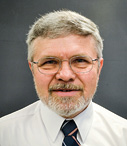When I was in college, an acquaintance asked me why I was studying for the ministry. I paused and answered, “I have a call.” It seemed like a really good answer! It satisfied the inquirer. It solidified my direction. The only problem was, the answer was wrong. Two years later I discontinued my studies. Confusing.
The word “call” describes communication from one to another. A chairman calls a meeting to order, a victim calls for help, parents call the new baby Martin. God “called” Moses (Exodus 3), Isaiah (Isaiah 6), Peter (Matthew 4:18-20), and Paul (Acts 13), to be prophets, apostles, messengers, fishers of men. He directly called them to proclaim to sinners His message of forgiveness and eternal life through the Savior. The call provided these men with the conviction to go forward, even against obstacles. The same call gave the listeners reason to heed!
Today divine calls are still extended to laborers in God’s kingdom—to pastors and teachers in the churches. And, yes, women are called to teach the lambs. However, the call today does not come directly from God. It is extended through the people of the church. In Acts, “The Holy Spirit said [to the believers at Antioch], ‘Now separate to Me Barnabas and Saul for the work to which I have called them.’ Then, having fasted and prayed, and laid hands on them, they sent them away.” (Acts 13:2-3) In Romans, “How shall they preach unless they are sent?”. (Romans 10:15). The call came through the people of the church, yet the call is from God. “Take heed therefore unto yourselves, and to all the flock, over the which the Holy Ghost hath made you overseers, to feed the church of God, which He hath purchased with His own blood.” (Acts 20:28 KJV)
By direction of the Holy Spirit, your congregation through its voters has extended a divine call to your pastor or teacher to serve in your midst! It was not by luck or by chance, but by the Holy Spirit, that a particular pastor or teacher was called. The same is true at the synod level. The pastors or teachers who receive a call are also led by the Holy Spirit to determine whether it is at “this” congregation or “that” where their abilities are currently needed. Divine calls are not to be extended or considered on the basis of moving costs, salary, location, proximity to family, or other improper considerations. A call is not a business deal. The call is from God.
Because of sin, pastors and teachers, and also congregations, are not perfect. Issues arise. The call assures the “distressed” pastor and teacher, or the “distressed” congregation, that the Lord has brought the two together for His reasons and purpose. Even when the time of service is short, the call is the Lord’s. To “manipulate” a call is a recipe for trouble.
How do the roles of the individual Christians fit into this? Every Christian is indeed individually a member of the universal priesthood of believers. To scattered Christians, Peter wrote, “You are a royal priesthood . . . that you may proclaim the praises of Him who called you out of darkness.” (1 Peter 2:9) Each Christian has the right to approach the Lord, and to proclaim the Lord to others. Individual Christians together have the right to “call” someone to serve in their midst—often fulltime—to do this work for them, with them, and to them. The one called is nowhere authorized to “run” the congregation, rather “to feed the church of God, which He hath purchased with His own blood.” (Acts 20:28 KJV) Forgiveness in Jesus and eternal life in Jesus is the goal!
The Lord does give, to young people or old, a “desire” to prepare for the ministry and for receiving a call—which may or may not happen. However, the divine call comes through the church by the Holy Spirit. God’s gift and God’s blessing!
is pastor of Saint Luke’s Lutheran Church in Lemmon, South Dakota.


